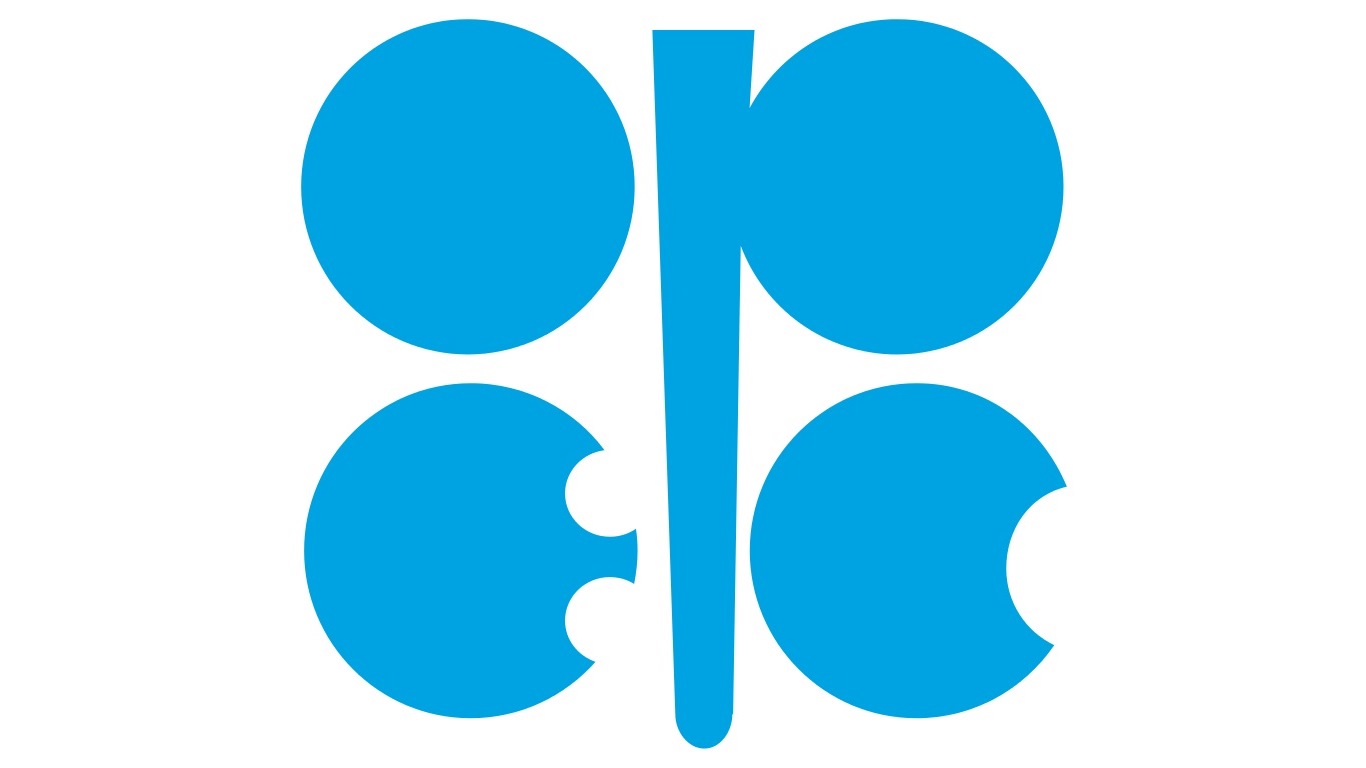Energy
OPEC and Partners Agree to 1.2 Million Barrel per Day Production Cut

Published:
Last Updated:

Although an official announcement has not yet been made, reports from the Vienna meeting between the Organization of Petroleum Exporting Countries and its Russia-led partners (aka, OPEC+) indicate that OPEC has agreed to chop 800,000 barrels of daily production and that the nonmembers will slice 400,000 barrels a day beginning in January. The agreement was attributed by Reuters to Iraqi oil minister Thamer Ghadhban.
Crude oil prices have risen steadily since early this morning, with West Texas Intermediate (WTI) last seen up less than 5% and Brent up more than 5%.
The 1.2 million barrel reduction is expected to last for six months but will be reviewed in April at Russia’s insistence. The reduction is also larger than the 1 million barrel cut that had been expected.
According to reports, OPEC+ will not identify how production quotas will be parceled out among the cooperating countries, but Saudi Arabia is expected to absorb the lion’s share of the OPEC reductions and Russia the biggest share of the cuts among non-OPEC partners.
A particular sticking point had been how Iran would be affected by the cuts. The country had threatened to block a deal unless it received an exemption. U.S. sanctions against Iran have seriously damaged Iranian crude exports and the country apparently got its way so that the deal could be completed.
One particularly unhappy observer is sure to be U.S. President Donald Trump, who has been pushing the Saudis to lower, not raise, oil prices. Saudi Arabia could feel the sting of Trumpian wrath if the president decides to take a tougher line with the country over the October murder of journalist Jamal Khashoggi.
So far the president has downplayed the Saudi role in Khashoggi’s murder, but the U.S. Senate already has passed a bill that could curb support for Saudi Arabia’s role in the civil war in Yemen. But the president is famous for his grudges, and he will surely feel betrayed by the Saudis after standing virtually alone among Western nations questioning the evidence that the Saudi government and Crown Prince Mohammed bin Salman were behind the killing and dismemberment of Khashoggi.
The other development that OPEC+ must consider is rising U.S. exports of crude oil. The U.S. Energy Information Administration said yesterday that the United States became a net exporter of oil last week for the first time in 75 years. Rising prices encourage more drilling in U.S. shale plays and that, ultimately, threatens OPEC+ market share. The trade-off between higher prices and maintaining market share is one that OPEC has been unable to calculate correctly since the mid-1970s, and the cartel’s ability to do so now is even less likely.
The thought of burdening your family with a financial disaster is most Americans’ nightmare. However, recent studies show that over 100 million Americans still don’t have proper life insurance in the event they pass away.
Life insurance can bring peace of mind – ensuring your loved ones are safeguarded against unforeseen expenses and debts. With premiums often lower than expected and a variety of plans tailored to different life stages and health conditions, securing a policy is more accessible than ever.
A quick, no-obligation quote can provide valuable insight into what’s available and what might best suit your family’s needs. Life insurance is a simple step you can take today to help secure peace of mind for your loved ones tomorrow.
Click here to learn how to get a quote in just a few minutes.
Thank you for reading! Have some feedback for us?
Contact the 24/7 Wall St. editorial team.